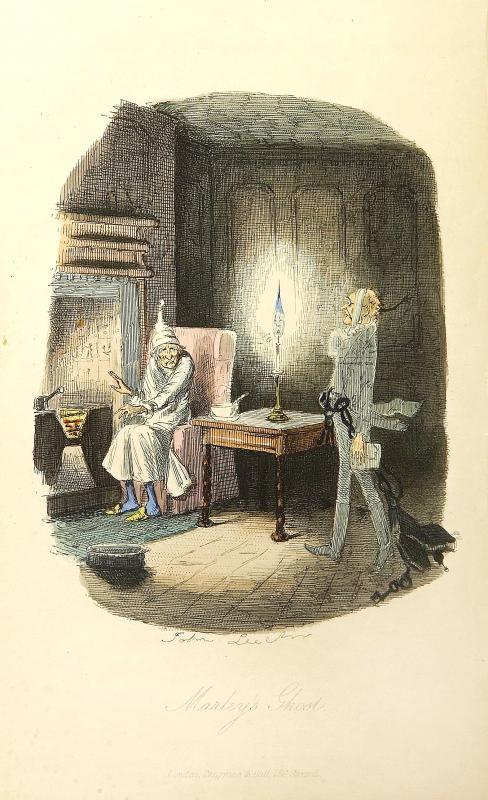The Proto-Indo-European (PIE) root meaning “man” is ner-. It survives in male names such as Andrew and Alexander, and is the root of the word that gives us “android,” first used in English in 1837 and meaning an automaton resembling a human being in form and movement. Android derives from the Greek andro- (man) and -eides (form, shape).
The ancient PIE root ner- also gave us the Greek anthropos, meaning “man, human being” (including women) — as opposed to the gods — and the English prefix anthropo- (“pertaining to man or human beings”). From here we have anthropocentric (placing humanity at the center of things); anthropology (the study of humans and human culture); and philanthropy (literally, the “love of mankind,” and by extension the giving of money to benefit people, from the Greek philanthropia (“humanity, benevolence and love to mankind”). The opposite of philanthropia is the Greek misanthropos (using misein, “to hate”), which gives us the English “misanthropy” (the hate of mankind) and “misanthrope” (a person that dislikes mankind and avoids people).
(Paul Cooper, Taipei Times)

Photo: Wikimedia Commons 照片:維基共享資源
原始印歐語字根「ner」,是「男人」的意思,在現今的男子名「Andrew」(安德魯)和「Alexander」(亞歷山大)中還可見到。這個字根也衍生出「android」(機器人;安卓)一詞,該詞最早使用在英文中是在一八三七年,意為形狀和動作都像人的自動機械裝置。「android」是由希臘文的字首「andro」(人),以及字尾「eides」(形式、形狀)所構成。
「ner」這古老的原始印歐語系字根,也衍生出希臘文「anthropos」,意為「男人、人類(包括女人)」──這是與眾神相對而言的,以及英文的前綴「anthropro」(「與男人或人類相關的」)。由此前綴,而有「anthropocentric」(以人類為宇宙中心的)、「anthropology」(人類學,即對人類與人類文化之研究),以及「philanthropy」(慈善事業,其字面意義為「對人類的愛」,並引伸為捐贈金錢以使人們受益。該字源於希臘文「philanthropia」(「對人類的人道、仁慈和愛」))等英文字。「philanthropia」的反義詞是「misanthropos」(該字中的「misein」,意為「恨」),由此衍生出英文的「misanthropy」(不願與人來往、憤世嫉俗),以及「misanthrope」(憤世者、不喜人類且不願與人來往的人)。
(台北時報林俐凱譯)
Did you know?
你知道嗎?
Indo-European languages constitute a large language family incorporating most European languages, the Germanic (including English), Romance and Balto-Slavic group languages among them, as well as languages in the northern Indian Subcontinent and the Iranian Plateau. All in all, 46 percent of the global population speaks an Indo-European language as a first language.
Proto-Indo-European (PIE) is the linguistic reconstruction of the Indo-European languages’ ancient common ancestor. There is no written record of PIE.
印歐語系是個龐大的語族,涵括了大多數歐洲語種──例如日耳曼語(包括英語)、羅曼語和波羅的-斯拉夫語族,也包括北印度次大陸及伊朗高原的語言。總體而言,全球人口有百分之四十六是以印歐語系之語言為母語。
原始印歐語系(PIE)是推理重建出來的印歐語系共同祖先。原始印歐語系並未有書寫下來之記錄。

As the priest Antonius Hambroek stood in the dim chamber of Fort Zeelandia, his eldest daughter clung to him, her voice trembling. “Father, don’t go. They’ll kill you, and what will become of Mother and my sisters?” Outside, the sounds of Koxinga’s relentless canon siege boomed through the fortress. The defenders were on the brink of collapse. Starvation gnawed at their resolve, and the air carried the acrid stench of spent gunpowder and rotting flesh. Dutch reinforcements from Batavia had failed to arrive, leaving the garrison isolated and hopeless. Hambroek’s face was calm, though sorrow weighed heavily on his

As we bundle up in thick coats to stay warm during the winter, there is a population that has already adapted to extremely low temperatures. These people live in the remote city of Yakutsk, the coldest city on Earth. Yakutsk is situated in the heart of Siberia, which is the capital of the Sakha Republic in Russia. This historic mining city began to flourish in the 19th century following the discovery of gold deposits. Given its construction on permafrost, the average temperature in the city remains below 0°C for over half the year, with winter temperatures dropping to an astonishing -50°C.

A: Apart from 2NE1, Rain and Maroon 5, Japanese band Yoasobi is set to hold two shows in Taipei this weekend. B: Yoasobi? A: Yoasobi is a J-pop duo formed by Ayase and Ikura in 2019, and it’s loved by young people. Haven’t you heard? B: Oops, I’m feeling a little old. A: It sings the theme songs of “Oshi No Ko” (“My Idol’s Children”) and other TV series, leading it to gain popularity among young people. A: 除了2NE1、Rain、魔力紅,日本熱門樂團Yoasobi本週末也將連唱兩場。 B: Yoasobi樂團? A: 這是由Ayase、Ikura在2019年組成的雙人團體,近年來大受年輕人歡迎!你沒聽過嗎? B: 天啊我覺得自己老了。 A: 他們唱了《我推的孩子》等人氣影視作品主題曲,所以大受年輕人喜愛。 (By Eddy Chang, Taipei Times/台北時報張聖恩)

A: Happy Year of the Snake! Did you do anything special during the Lunar New Year holiday? B: I went to K-pop girl group Apink’s concert. How about you? A: I just stayed at home. But I’m going to girl group 2NE1’s show on Saturday. B: Wow, I really love their megahit “I Am the Best,” better known by its Korean title “Naega jeil jal naga.” A: I’m so glad that 2NE1 reunited last year, eight years after they disbanded in 2016. A: 蛇年快樂!你春節有做什麼特別活動嗎? B: 我去了南韓女團Apink的演唱會,你呢? A: 我都宅在家裡,不過這週六要去韓流天團2NE1的演唱會。 B: 我愛該團神曲《我最紅》,韓文歌名《Naega jeil jal naga》超洗腦。 A: 她們2016年解散8年後,去年終於合體真令人開心。 (By Eddy Chang, Taipei